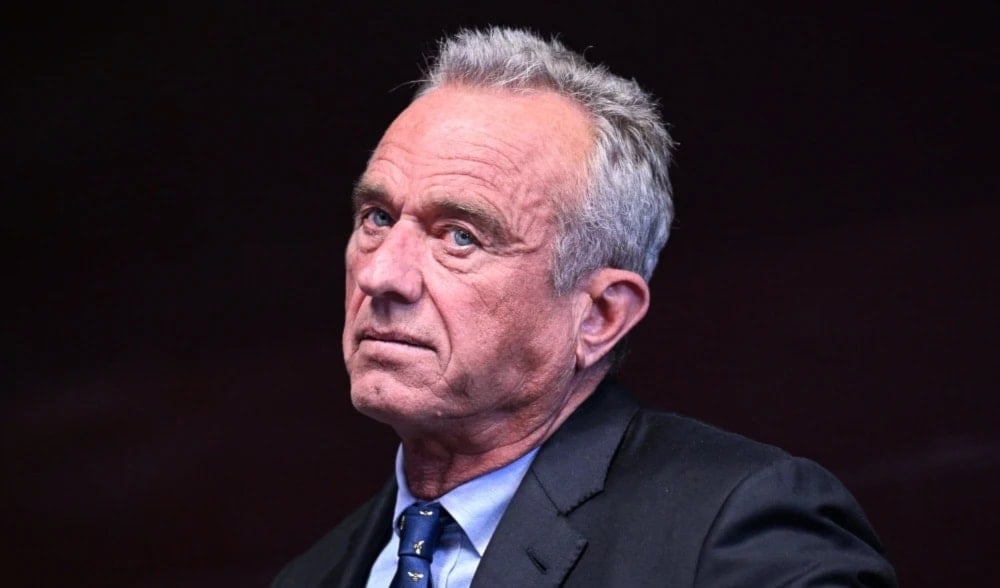RFK Jr. fires entire CDC vaccine panel, sparks backlash
Robert F. Kennedy Jr. removes all 17 CDC vaccine advisors, citing the need for reform.
-

Robert F. Kennedy Jr. in Oakland, California, on March 26, 2024 (AFP)
Health and Human Services Secretary Robert F. Kennedy Jr. has removed all 17 members of the Advisory Committee on Immunization Practices (ACIP), a move that is being described as the most sweeping overhaul of CDC vaccine policy in decades.
The RFK Jr. vaccine committee purge has prompted alarm among public health leaders, who warn the action could destabilize long-standing evidence-based guidance and threaten trust in national immunization policy.
The CDC vaccine policy shakeup comes amid Kennedy's claim that new members are being vetted to replace the outgoing panel. HHS described the decision as a necessary step toward “restoring public trust” in vaccines. But critics, including former CDC Director Tom Frieden, argue it will do the opposite.
“Make no mistake: Politicizing the ACIP as Secretary Kennedy is doing will undermine public trust under the guise of improving it,” Frieden said.
People who received an Omicron booster were more than 18 times less likely to die from Covid and 3 times less likely to be infected compared to unvaccinated people, according to the latest CDC data.
— Dr. Tom Frieden (@DrTomFrieden) January 6, 2023
The decision triggered immediate concern over Kennedy’s anti-vaccine history. The ACIP panel removal raised fears that the committee will be repopulated with individuals sympathetic to vaccine skepticism, rather than infectious disease experts.
Louisiana Republican Senator Bill Cassidy, who voted to confirm Kennedy after receiving assurances he would preserve existing vaccine safety systems, publicly voiced his concerns.
“Of course, now the fear is that the ACIP will be filled up with people who know nothing about vaccines except suspicion,” Cassidy said on X.
While Kennedy pledged during his confirmation hearings to retain the ACIP “process", he did not commit to keeping the existing panel. Thirteen of the removed members were appointed under the Biden administration, with terms set to end in 2028.
Of course, now the fear is that the ACIP will be filled up with people who know nothing about vaccines except suspicion. I’ve just spoken with Secretary Kennedy, and I’ll continue to talk with him to ensure this is not the case.https://t.co/iXjTDieAwY
— U.S. Senator Bill Cassidy, M.D. (@SenBillCassidy) June 9, 2025
ACIP credited with life-saving vaccine recommendations
The ACIP plays a central role in the CDC’s immunization framework, making recommendations on vaccine use after public evaluation of clinical data.
In recent years, the panel has approved vaccines credited with dramatically improving public health. These include the rotavirus vaccine, which reduced hospitalizations for severe pediatric diarrhea by 70,000 annually, and the HPV vaccine, widely recognized for cutting cervical cancer rates.
Paul Offit, director of the Vaccine Education Center at the Children's Hospital of Philadelphia, noted that the ACIP’s guidance has directly led to safer, healthier outcomes for American children. “The ACIP should be given rewards, not fired,” he said.
'Clean sweep necessary'
The Kennedy anti-vaccine concerns were amplified by his own comments following the panel’s dismissal. “A clean sweep is necessary to reestablish public confidence in vaccine science,” Kennedy said in a statement.
“ACIP's new members will prioritize public health and evidence-based medicine. The Committee will no longer function as a rubber stamp for industry profit-taking agendas.”
Public health institutions responded with strong rebukes. Jason Goldman, president of the American College of Physicians, warned that bypassing the ACIP review structure “interferes with the practice of evidence-based medicine and destabilizes a trusted source” of national vaccine guidance.
Tina Tan, president of the Infectious Diseases Society of America, called the decision “reckless, shortsighted and severely harmful.”
With the next ACIP meeting set for later this month, originally planned to include discussion of COVID-19 vaccine updates, observers now await clarity on whether Kennedy’s vaccine advisory committee changes will mark a return to scientifically grounded policy or a pivot toward ideology-driven oversight.

 3 Min Read
3 Min Read








